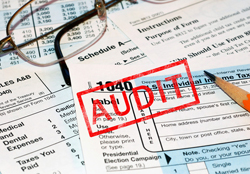Last updated: Apr. 29, 2013
 Canadian taxpayers owe the Canada Revenue Agency (CRA) $29 billion in unpaid taxes according to a recent article in the National Post.
Canadian taxpayers owe the Canada Revenue Agency (CRA) $29 billion in unpaid taxes according to a recent article in the National Post.
The article states that the growth in tax debt in recent years — according to CRA officials — can be attributed to a number of factors, including:
- An increase in overall revenues due to a higher population and more businesses
- New harmonized provincial tax in Ontario
- New efforts to combat aggressive tax planning
Tax Planning Not Tax Evasion
The term “aggressive tax planning” is an interesting one. Tax planning itself is not illegal.
According to the Canadian Master Tax Guide, tax planning involves cases of tax reduction or elimination that are clearly provided for, or not specifically prohibited, in the law in a manner that is genuine and open with the framework of the law.
However, over the years numerous legal judgments have made it more challenging to distinguish between what is considered tax planning and what is tax avoidance or tax evasion.
Whether it is intentional or accidental, unreported income — even $5.00 of unreported interest from a bank account — is tax evasion and you could find yourself on the wrong side of a CRA ruling with a steep penalty. The recent 2013 Federal Budget even announced an additional $100 million towards their compliance program for 2013-2014 to collect unpaid taxes.
To avoid the unpleasant situation of an audit and a resulting penalty for tax evasion, it’s recommended that you read the near 3000-page Canada Income Tax Act and study the dozens of court cases involving the CRA.
The alternative is to find a tax services professional knowledgeable in the Income Tax Act and who has experience with audits and dealing with the CRA.